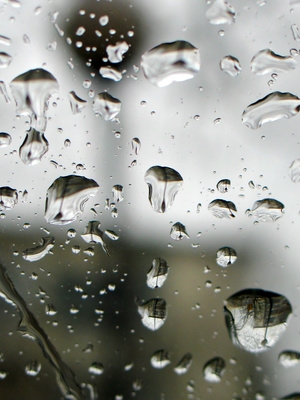
According to Kleen Way, glass corrosion, water spots and environmental pollution are common causes of (interior/exterior) window haze and cloudiness. Learn the effects of particular elements (natural and unnatural) to windows and glass, and suggested remedies tried by others.
Glass, for the most part, is tempered for resistance against natural elements and pollutants. Though resistant, glass is not indestructible, asserts Corrosion Doctors. The existence of hydrofluoric and phosphoric acids in water, causes a stripping away of alkali from glass, which leads to further corrosion and haze. The hotter the temperature of water exposure, the more significant the corrosion and haze to the glass or window.

According to Wise Geek, water is high in calcium, magnesium, metal ions, and other mineral content. It can also include bio carbonates and sulfates. These minerals when compiled to the surface of glass (windows), where they remain for an extensive period of time, produce spots (small to medium clusters of haze) that are mirrored from the external to internal surfaces of the window or glass. The hotter the water condensation, the more stubborn the spot. Reducing the temperature of water used to wash glass will eliminate some of the spotting. Vinegar also helps in restoring alkali.

Ocean Air posits, "Haze particles are a byproduct of burning fossil fuels. They reflect sunlight, thereby offsetting to some extent, effects due to the buildup of greenhouse gases in the Earth's atmosphere which also arises primarily from burning fossil fuels." This buildup of burnt fuel commonly found on car windows is difficult to remove. A replacement of glass is often needed. "Left to themselves, water molecules have a difficult time coming together, as they must do to form a liquid. It's easier for them to join when they're on the surfaces of particles, which are called cloud condensation nuclei."

Removal of typical glass haze, due to simple water condensation and dirt, is possible with the use of vinegar and/or lemon (lime) juice. These items help with restoration of alkali in glass. The use of a scrub brush or scourging pad (though somewhat scratchy), is also effective, according to Thrifty Fun.

A multiplicity of items currently exist on the market to aid in the removal of simple water-condensation haze. Special glass pretreatments for newly purchased windows are offered for the minimization of future stains. For more stubborn and severe water spots, corrosion and haze, replacement windows are typically required.
